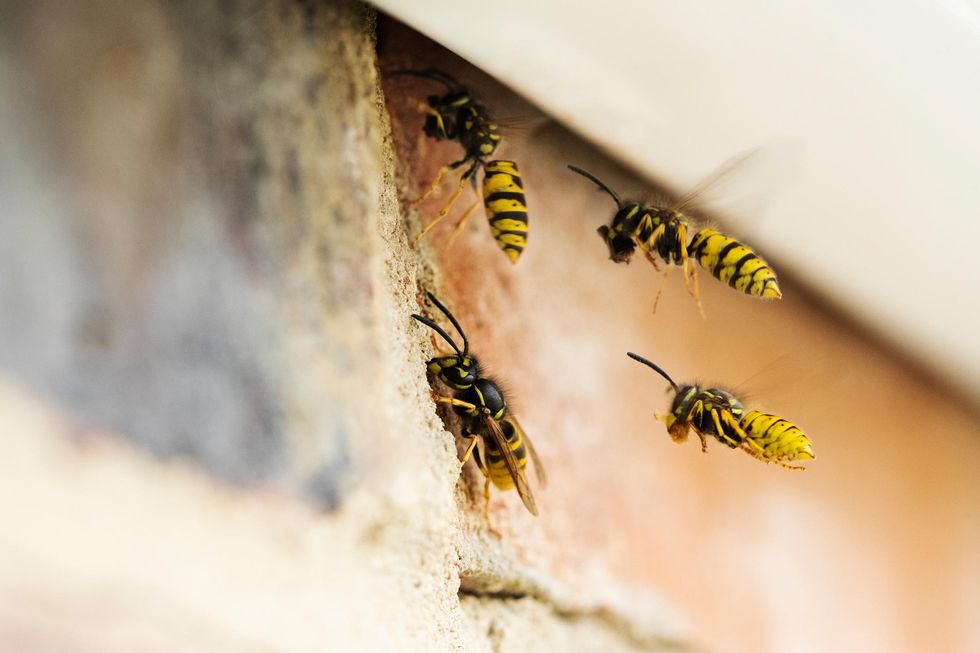Brits have been warned that another heatwave is on the way, but that's not the only thing the public has to contend with as the rising temperatures are set to cause a huge wasp invasion.
The hot and dry summer weather without any rainfall is expected to continue with highs of 35C in a heatwave that is set to last longer than the record-breaking scorcher last month.
While we may be struggling with the heat, it's the perfect environment for wasps that build nests in different areas from underground as well as up in trees and in the attics of homes as storms and rain can wash away what they have made.
Sign up to our free Indy100 weekly newsletter
A hosepipe ban has been enforced in Hampshire and the Isle of Wight due to the current drought - which is good news for wasps as it means they can spread.
Pest control companies know all too well about the increase in wasps, France is already experiencing the wasp invasion as Sebastien Pommereul, manager of the company Stop Wasps – Stop Pests described the rise in demand he has seen this year.
"This year, we are doing between 10 to 12 interventions a day. Last year, we were at five," he told BFMTV.
"The year 2022 will be that of the wasp."

Hot summers are ideal for outdoor dining, BBQs, drinking in beer gardens and cooling down with an ice cream but they are also ideal for "sugar-crazed" wasps too when they grow from larva to fully-fledged wasps as they crave the sweet stuff as a new source of energy.
Although wasps can sting, they only do so if they feel threatened so it's better to remain calm and still if one is buzzing around you instead of attempting to shoo it away with your hands.
But if you do get stung by a wasp, it can be painful at first and there may be itchiness, redness and swelling around the area you've been stung, according to the NHS.
"The symptoms will normally improve within a few hours or days, although sometimes they can last a little longer," the website reads.
To treat a sting, ensure you remove the stinger and wash the affected area with soap and water, then apply a cold compress for 10 minutes to reduce swelling.
Some may have a mild allergic reaction where a larger area of the skin becomes itchy, red, and swollen but this should pass in a week.
However, those who experience a severe allergic reaction, where they have a swollen face, mouth or throat, trouble breathing, vomiting and dizziness may be going into anaphylactic shock must seek medical attention immediately by calling 999.
Have your say in our news democracy. Click the upvote icon at the top of the page to help raise this article through the indy100 rankings.














